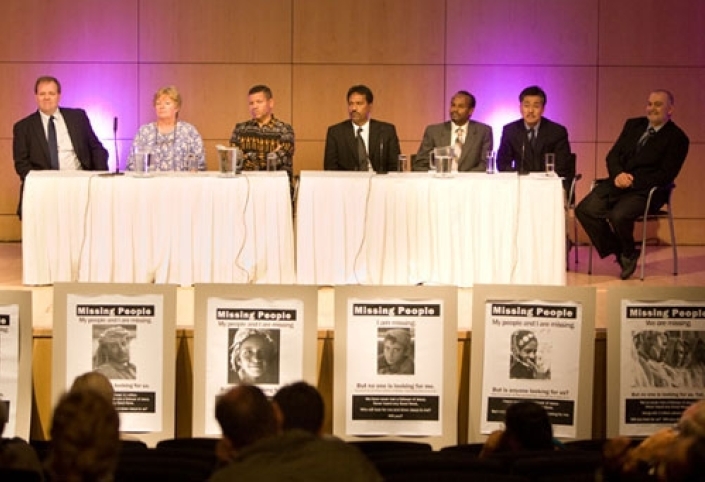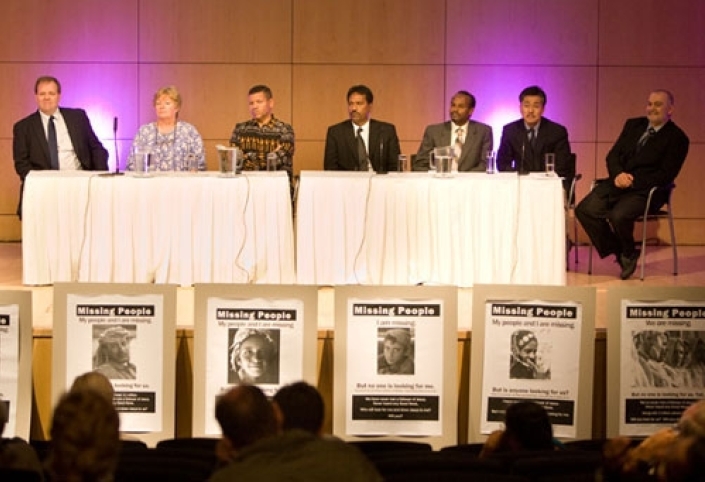CAPE TOWN, South Africa – More than 25 percent of the ethnic groups (unreached people groups) in the world, or about two billion people, are not represented at the Lausanne Conference.
An unreached people group means that cross-cultural mission is necessary for a person in the group to hear the Gospel because they cannot find people within their ethnic group to share with them the good news.
Mission leaders on Wednesday said the hardest obstacle to overcome in reaching unreached people groups is the obedience of the church. They spoke at the Lausanne multiplex session titled “M*ss*ng People: The Unserved One-Fourth World.”
A video shown at the beginning of the session highlighted that despite the fact that 86 percent of Muslims, Hindus and Buddhists do not personally know a Christ follower, 90 percent of missionaries go to “Christianized” regions, according to the World Christian Database.
“In my 14 years working with Muslims, mobilizing churches in Korea, I came to realized that Muslims haven’t been missing people to God, but to God’s people,” said Henry Lee, a mission leader based in Seoul, South Korea, and part of Ethne to Ethne (Greek for people to people), a global mission network focused on getting the gospel to unreached people groups.
Kent Park, president of U.S.-based Mission to Unreached Peoples, explained why churches do not share the Gospel with people groups that need to hear it.
“The Indonesian church, by its own confession, said we have ignored them (difficult unreached people groups in Indonesia) because we didn’t want to pay the price, we were afraid, we didn’t think it would work, we didn’t think they would change. That’s what it means to be unreached.”
Arychiluhm Beyene, who has worked in the mission field for the last 15 years, including six years with the most difficult people in Somalia, told a touching story of a “scary” looking Somali man who converted to Christianity from Islam.
After the Somali man converted, he told Beyene, “When you look at us from outside with the long beard, with the cap, and jalabiya (traditional loose fitting clothes worn by some Somali men), we look scary. But I just want to give you assurance, don’t stop telling the good news. Although we look scary from the outside, our inside is looking for the truth.”
During the missing people session, an African mission leader also spoke to the disconnect he sees between what African Christians are taught and how they live their lives.
Although Africa currently has the highest Christian growth rate in the world, it also has the highest levels of HIV, conflict, poverty, and corruption, said Peter Tantal, the South Africa regional director of Ethne to Ethne.
In 1900, there were 8 million Christians in Africa. Today, there are 500 million Christians in Africa and in some countries 90 percent or more of the population is Christian.
“The challenge before us is despite as a church having grown so much, we need to teach people what it means to live as people of God,” said Tantal.
The Third Lausanne Congress on World Evangelization, also known as Cape Town2010, has drawn more than 4,000 Christian leaders representing over 190 nations to Cape Town, South Africa.The conference was founded by American evangelist Billy Graham in 1974 in Lausanne, Switzerland,to bring together the global body of Christ for world evangelization.









